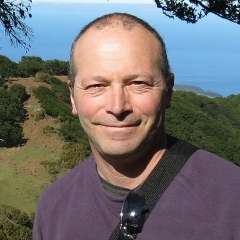Despite the modern predilection for completism and authenticity in music, Berlioz's Les Troyens is habitually subjected to cuts in performance. True, it’s a colossus of the repertoire – some four hours of music if given in full – but no longer than many a Wagner opera, nor fellow French grand operas, come to that. The latest to wield the knife is Nuremberg, where the work’s local première was given in a version lasting under three hours plus interval. And that timing is not allowing for the occasions in Calixto Bieito’s bracing new production when the music was absent but stage business carried on. However, any sense of loss in terms of passages of the score was mitigated not only by a constantly thought-provoking staging but also by a riveting and thrillingly sung and played musical performance.
Bieito is renowned, if not infamous, for giving controversial takes on the great works of the operatic stage. For The Trojans, he combines a concision of storytelling with a whole raft of commentary, as much of it mystifying as it is enlightening. His setting, designed by Susanne Gschwender, is abstract – an empty stage dominated by a huge outline of a horse, painted by a child before our eyes, dominates ‘The Fall of Troy’ (Acts 1 and 2), which is ripped away to reveal a massive wooden framework that provides the setting for Part 2, ‘The Trojans in Carthage’. The chorus spends Part 1 dressed in bullet-proof gear, Part 2 in white contamination suits and is treated as a mass, often moving as one, which emphasises the monolithic nature of both its music and the mythical monumentality of the drama.
The dramatic interaction between the characters is largely confined to the very front of the stage, which brings both immediacy and clarity, whether in the great outbursts from the distraught Cassandra or in the eroticism of the love duet between Dido and Aeneas during which they both massage a naked man with crude oil and plaster themselves with the same. As with so much contemporary opera direction, it gets very messy, but then so does the situation in which the opera’s characters find themselves – in Bieito’s reading of events, Aeneas commits suicide rather than choose between Italy and Dido, before she follows his example.
Another unusual interpolation is the chorus member reciting Michel Houellebecq’s poem Isolement at the start of the final act, with its potent last line “What happened to the gods?”, the message being, presumably, that not even the gods can save the protagonists from their fate. One senses, also, an anti-war polemic, a common theme in Bieito’s work, which here reminds us how myth has always been used to throw light on our contemporary existence. The ‘Royal Hunt and Storm’ at least survived the scalpel and was presented as a kind of mimed masque of pursuit and violence.
Nuremberg is fortunate in finding a tenor who can encompass the heroic role of Aeneas with such ease and mellifluousness: Mirko Roschkowski is the real thing and a worthy successor to Vickers and Heppner in the part. Katrin Adel’s Dido was perhaps not on quite the same level, missing something of the part’s vocal lustre, but Roswitha Christina Müller tore through Cassandra’s fearsome music with a clear focus of tone and communication of the text. It is worth noting that Roschkowski apart, the cast is drawn from the house’s own ensemble, which proved strong in every department – Jochen Kupfer’s Corebus, Ina Yoshikawa’s Ascanius and Alex Kim’s Iopas were just the most prominent.
Staatstheater Nürnberg’s chorus is certainly one to reckon with: forceful but vigorous and true teamwork – one wouldn’t want to meet this lot on the Trojan battlefield. And general music director Marcus Bosch drew all the panoply of weird and wonderful sounds of Berlioz’s orchestration from the players of the Staatsphilharmonie Nürnberg while keeping the musical flow and tension as vital and compelling as the business on stage.




